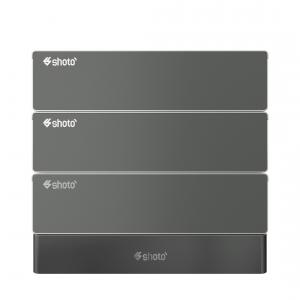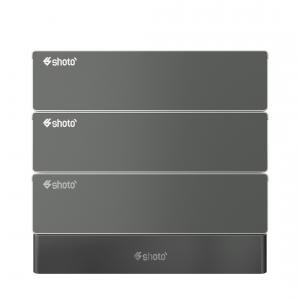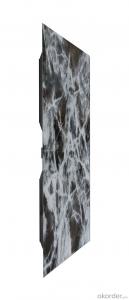Shoto Lifepo4 Battery Cells Wall Mount Power Rack 48V 200Ah 10..2Kwh 6000Cycles Li Ion Battery
- Loading Port:
- SHANGHAI
- Payment Terms:
- TT OR LC
- Min Order Qty:
- 50 set
- Supply Capability:
- 5000 set/month
OKorder Service Pledge
Quality Product, Order Online Tracking, Timely Delivery
OKorder Financial Service
Credit Rating, Credit Services, Credit Purchasing
You Might Also Like
Item specifice
Application:
Home
Output Voltage (V):
51.2v
Work Time (h):
8 hours
Introduction:
Solar energy preferably used by domestic appliances, and additional Energy is stored in battery.
During the day, when battery is fully charged, the additional energy produced by solar can be sold and fed into the public .
At evening, the energy stored in the battery supplies electriciity to the domestic appliances.
At night, when the energy stored in the battery is depleted, the public grid supplies energy to the domestic appliances.
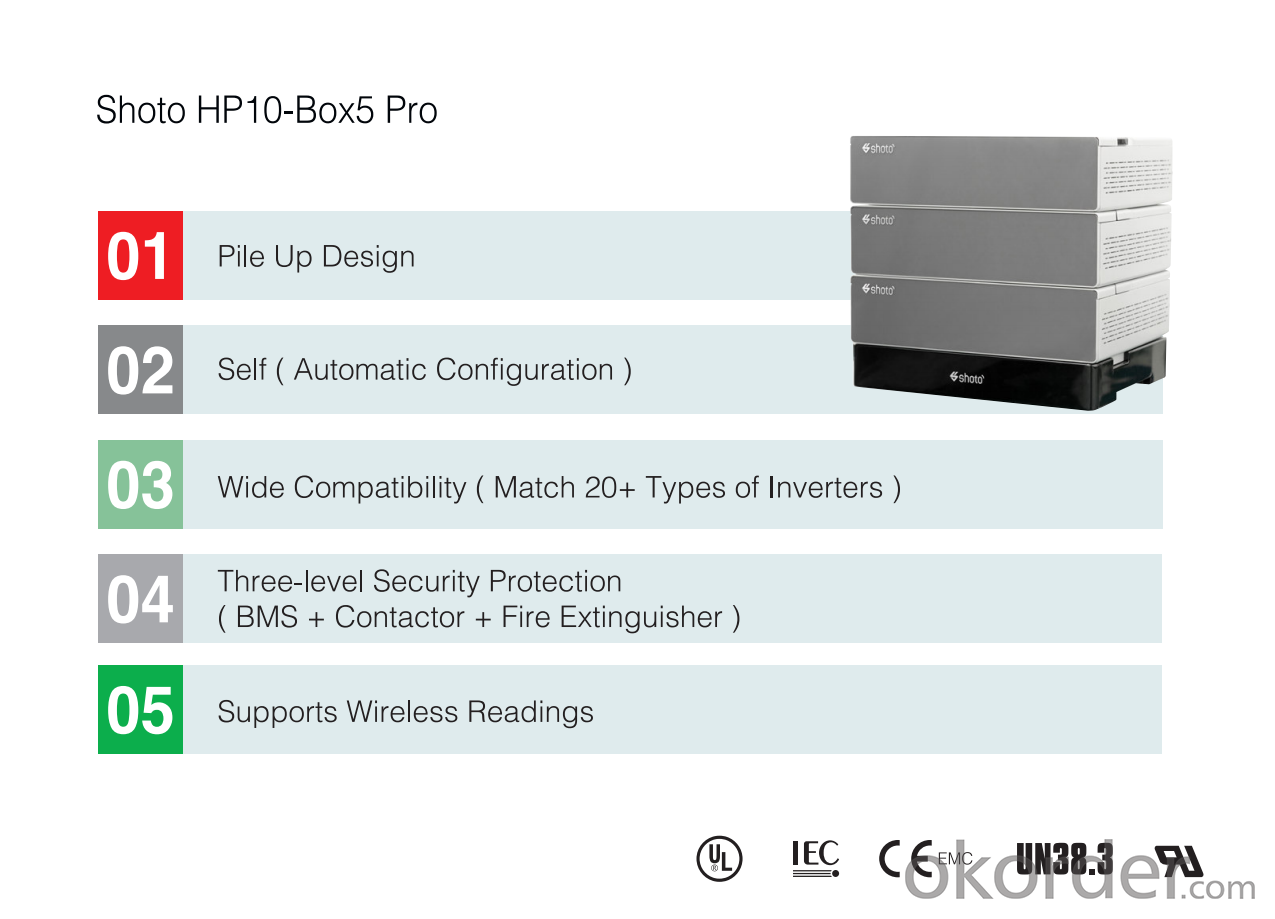
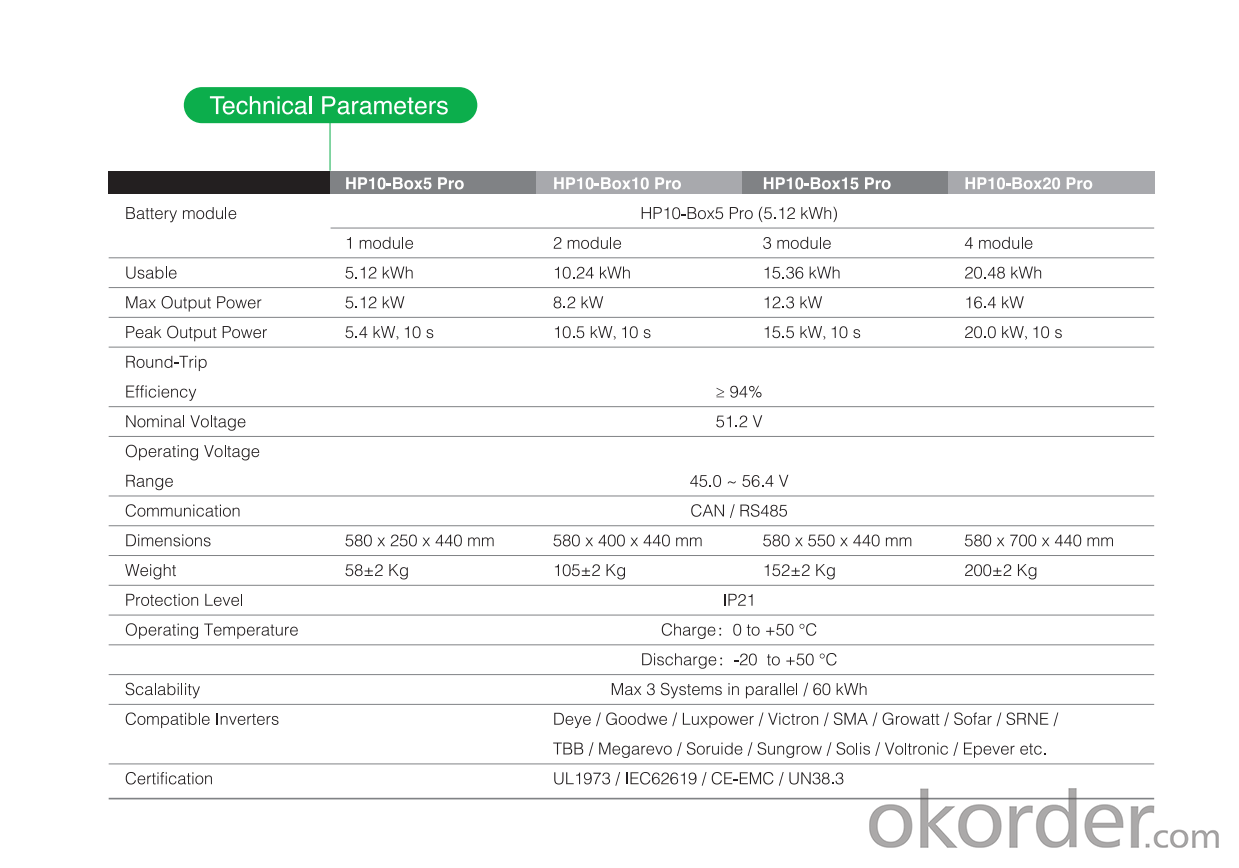
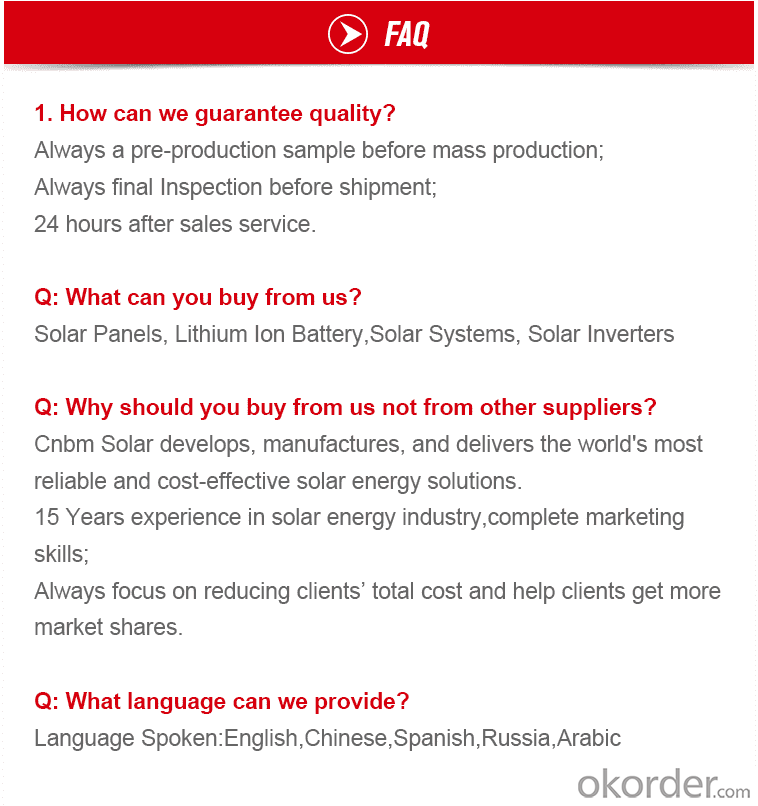
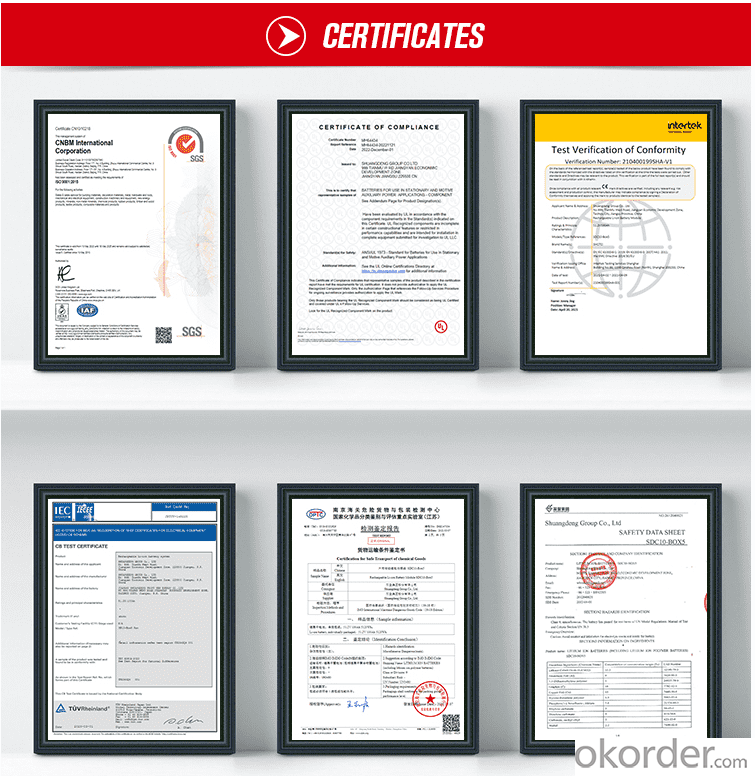
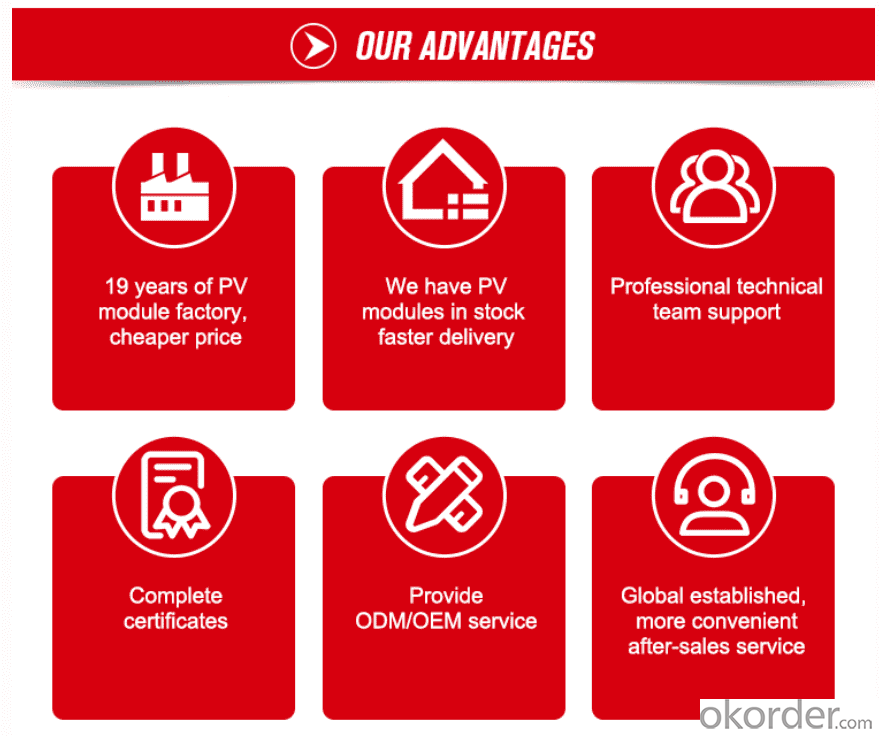
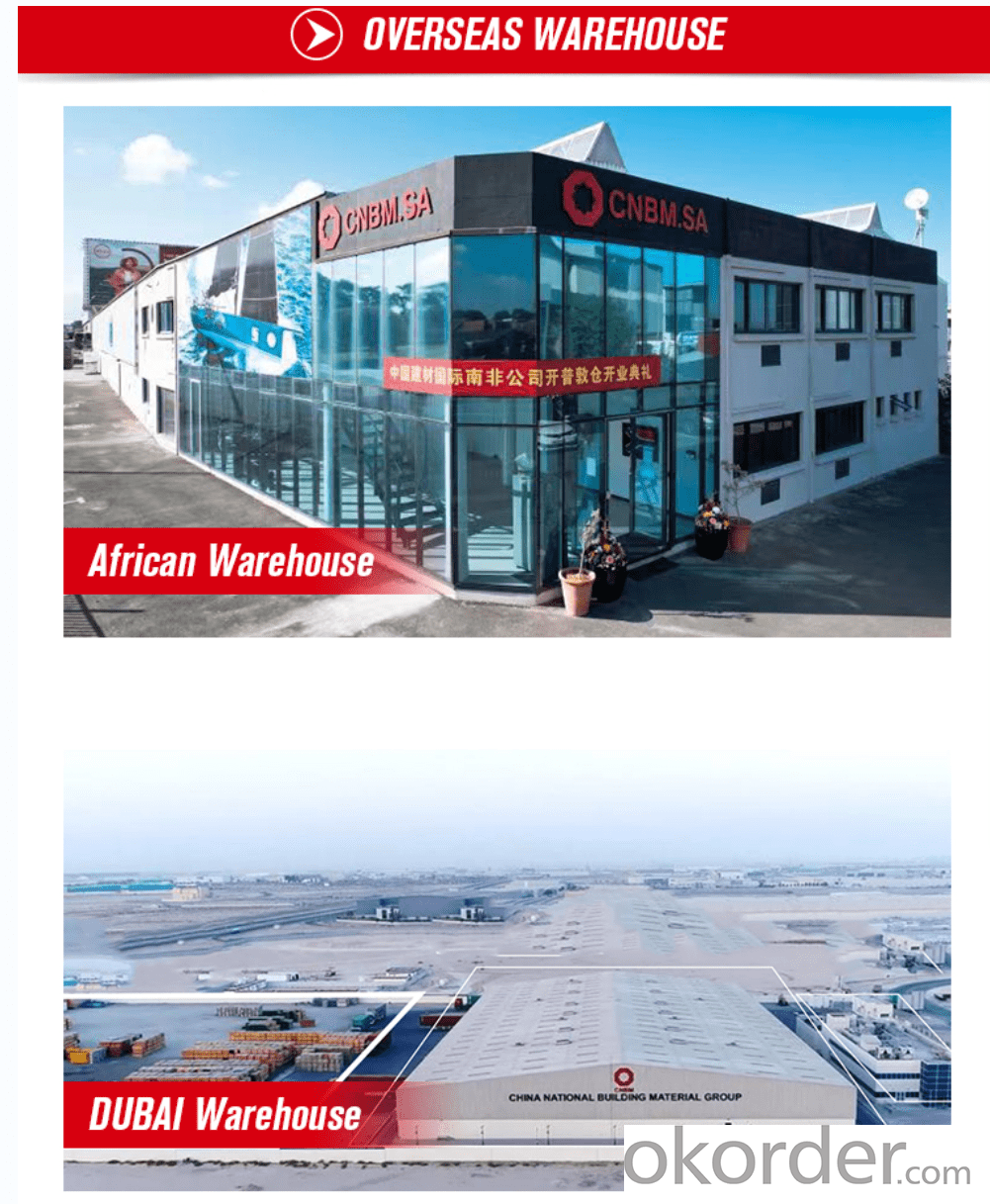
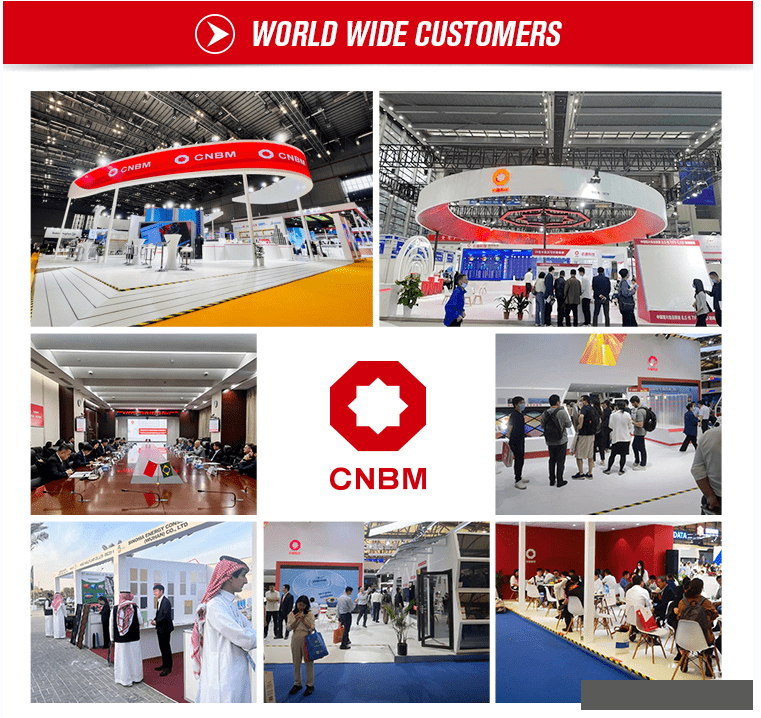
- Q:Can solar energy systems be used for powering breweries?
- Yes, solar energy systems can be used for powering breweries. Solar power is a renewable and sustainable energy source that can provide a reliable and cost-effective solution for powering various industrial facilities, including breweries. By installing solar panels, breweries can generate electricity from sunlight and use it to power their operations. Breweries require a significant amount of energy to run their equipment, such as boilers, refrigeration systems, pumps, and lighting. Solar energy systems can be designed to meet these energy demands by sizing the solar panel array and integrating energy storage systems, such as batteries, to ensure a continuous power supply. The benefits of using solar energy in breweries are numerous. Firstly, solar power helps reduce energy costs by significantly lowering or even eliminating electricity bills. This is especially beneficial for breweries, as energy costs can be a major expense in their operations. By generating their own electricity, breweries can become more self-sufficient and reduce their dependence on the grid. Secondly, solar energy is a clean and environmentally friendly option. Breweries that switch to solar power can significantly reduce their carbon footprint and mitigate their impact on the environment. This can be a valuable marketing point, as consumers increasingly prioritize sustainability and support businesses that embrace renewable energy. Furthermore, solar energy systems require minimal maintenance and have a long lifespan, making them a reliable and durable energy solution for breweries. With proper installation and regular monitoring, solar panels can last for 25-30 years or more, providing a stable and consistent energy source for breweries. In conclusion, solar energy systems can indeed be used for powering breweries. They offer significant cost savings, environmental benefits, and long-term energy reliability. With the increasing affordability and efficiency of solar technology, more breweries are likely to embrace this sustainable energy solution in the future.
- Q:Can solar energy systems be used in areas with limited access to solar energy warranties and guarantees?
- Yes, solar energy systems can still be used in areas with limited access to solar energy warranties and guarantees. While warranties and guarantees provide added assurance and protection, the functionality and performance of solar energy systems largely depend on the availability of sunlight. Even in areas with limited access to sunlight, solar energy systems can still generate electricity, although their efficiency and output may be reduced. It is important to consider factors such as the amount of available sunlight, system design, and energy storage options to ensure optimal system performance in areas with limited solar energy warranties and guarantees.
- Q:Can solar energy systems be used in cold storage facilities?
- Yes, solar energy systems can be used in cold storage facilities. Solar panels can generate electricity to power refrigeration systems and other equipment in cold storage facilities. Additionally, solar thermal systems can provide heat for defrosting purposes or to maintain optimal temperatures inside the facility. Implementing solar energy systems in cold storage facilities can help reduce operating costs and carbon emissions.
- Q:Can solar energy systems be used for powering airports?
- Yes, solar energy systems can be used for powering airports. Solar panels can be installed on rooftops, parking lots, or vacant land surrounding airports to generate clean and renewable energy. This can help reduce the dependency on fossil fuels and lower greenhouse gas emissions. Additionally, solar energy systems can provide a reliable source of power, especially during peak demand periods, ensuring uninterrupted operations at airports.
- Q:What are the maintenance costs associated with solar energy systems?
- The maintenance costs associated with solar energy systems are generally low compared to other forms of energy generation. Solar panels themselves require very little maintenance as they have no moving parts. However, there are a few key components that may require periodic maintenance or replacement. One of the main maintenance costs is the cleaning of solar panels. Over time, dust, dirt, and debris can accumulate on the surface of the panels, reducing their efficiency. Regular cleaning, typically done with water or a soft brush, helps ensure optimal energy production. Another maintenance cost is the inspection and repair of electrical connections and wiring. These components are essential for converting the sun's energy into usable electricity. Regular inspections can identify any loose connections or damaged wiring that may hinder the system's performance. In addition, inverters, which convert the direct current (DC) generated by the solar panels into alternating current (AC) used in homes and businesses, may need to be replaced after a certain lifespan. Inverter replacement is typically required every 10-15 years, depending on the manufacturer and usage. Overall, the maintenance costs for solar energy systems are relatively minimal compared to the long-term savings and benefits they provide. It is recommended to have a professional solar installer or technician perform regular inspections and maintenance to ensure the system operates efficiently and maximizes its lifespan.
- Q:Can solar energy systems be used for powering off-grid eco-sanctuaries?
- Yes, solar energy systems can be used to power off-grid eco-sanctuaries. Solar panels can be installed to capture sunlight and convert it into electricity, which can then be utilized to meet the energy needs of the sanctuary. This sustainable and renewable source of energy allows eco-sanctuaries to operate independently from the grid, reducing reliance on fossil fuels and minimizing the environmental impact. Additionally, solar energy systems can be combined with energy storage solutions such as batteries to ensure a continuous power supply even during cloudy days or at night.
- Q:How does solar energy work?
- Solar energy works by capturing the sun's rays through solar panels, which contain photovoltaic cells. These cells convert sunlight into direct current (DC) electricity. An inverter then converts the DC electricity into alternating current (AC) electricity, which can be used to power homes, businesses, and other electrical devices. Excess energy can be stored in batteries or fed back into the grid for others to use, making solar energy a sustainable and renewable source of power.
- Q:Can solar energy systems be installed on sloped surfaces?
- Yes, solar energy systems can be installed on sloped surfaces. In fact, sloped surfaces are often preferred for solar panel installations as they allow for better sunlight exposure and increased energy production. However, proper mounting systems and angle adjustments may be required to ensure optimal performance and efficiency.
- Q:Can solar energy systems be used in conjunction with battery storage?
- Yes, solar energy systems can be used in conjunction with battery storage. This combination allows for storing excess energy produced by solar panels during the day and using it during periods of low or no sunlight. Battery storage helps provide a continuous power supply, reduces reliance on the grid, and enhances the efficiency and reliability of solar energy systems.
- Q:Are there any regulations or permits required for installing solar energy systems?
- Yes, there are regulations and permits required for installing solar energy systems. The specific requirements vary depending on the location and jurisdiction, as regulations are set at the local, state, and national levels. These regulations and permits are put in place to ensure that the installation of solar energy systems is safe, compliant with building codes, and meets local zoning requirements. Typically, a building permit is required to install a solar energy system. This permit ensures that the installation is done correctly and follows all necessary safety guidelines. The permit process usually involves submitting detailed plans and documentation, including structural engineering reports and electrical diagrams. These documents are reviewed by the local building department to ensure compliance with applicable codes and regulations. In addition to building permits, there may be other permits or approvals required for solar energy systems. This could include electrical permits, zoning permits, or even historic preservation approvals in certain areas. It is important to consult with the relevant authorities and obtain all necessary permits before installing a solar energy system to avoid any legal or safety issues. Furthermore, some jurisdictions may have specific regulations regarding the size, placement, and design of solar energy systems. These regulations are typically aimed at preserving the aesthetics of the area and ensuring the systems do not pose any risks or nuisances to neighboring properties. It is worth noting that regulations and permit requirements are constantly evolving and can vary greatly from one jurisdiction to another. Therefore, it is advisable to consult with local authorities or hire a professional solar energy installer who is familiar with the local regulations to ensure compliance throughout the installation process.
1. Manufacturer Overview |
|
|---|---|
| Location | |
| Year Established | |
| Annual Output Value | |
| Main Markets | |
| Company Certifications | |
2. Manufacturer Certificates |
|
|---|---|
| a) Certification Name | |
| Range | |
| Reference | |
| Validity Period | |
3. Manufacturer Capability |
|
|---|---|
| a)Trade Capacity | |
| Nearest Port | |
| Export Percentage | |
| No.of Employees in Trade Department | |
| Language Spoken: | |
| b)Factory Information | |
| Factory Size: | |
| No. of Production Lines | |
| Contract Manufacturing | |
| Product Price Range | |
Send your message to us
Shoto Lifepo4 Battery Cells Wall Mount Power Rack 48V 200Ah 10..2Kwh 6000Cycles Li Ion Battery
- Loading Port:
- SHANGHAI
- Payment Terms:
- TT OR LC
- Min Order Qty:
- 50 set
- Supply Capability:
- 5000 set/month
OKorder Service Pledge
Quality Product, Order Online Tracking, Timely Delivery
OKorder Financial Service
Credit Rating, Credit Services, Credit Purchasing
Similar products
New products
Hot products
Related keywords
